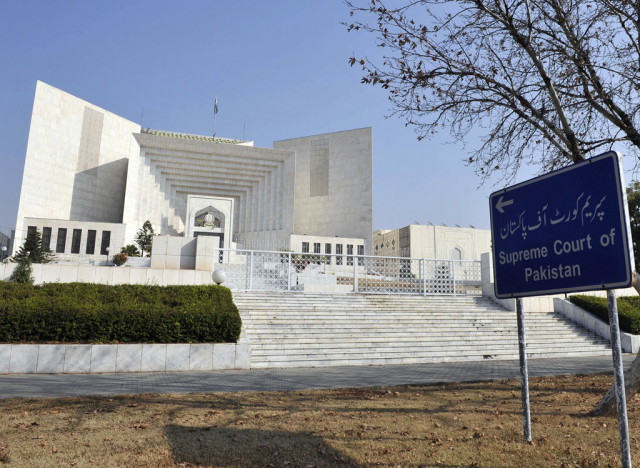2014 policy reinstated: SC strikes down LHC’s Hajj policy verdict
Additional attorney general says the high court had no jurisdiction to rule over the matter.

The Supreme Court on Monday reinstated Haj Policy 2014, striking down Lahore High Court’s (LHC) July 15 ruling, which declared the allocation of 15,000 pilgrims to the old Hajj Group Organisers as illegal.
A two member-bench, headed by Chief Justice Nasirul Mulk, was hearing the government’s petition challenging LHC’s verdict. While annulling the high court’s judgment, the SC observed that reasons for the order would be recorded later on.
The detailed judgment, issued by LHC on July 15, stated that there was a huge financial difference between the expenses of Hajj that was booked through private tour operators and the government of Pakistan, adding that the government was charging Rs272,000 per pilgrim whereas tour operators were charging more than one million rupees per pilgrim.
The LHC had said it was the duty of the government, as well as the private operators, to assist Muslims in the performance of Hajj and not to burden them to an extent where it becomes impossible for them to perform the ritual.
During Monday’s hearing, Additional Attorney General (AAG) Atiq Shah contended that the high court was not authorised to interfere in policy making, which falls under the domain of the executive wing.
Meanwhile, Mohammad Azhar Siddique, who was representing 11 new tour operators, argued that the Hajj policy violates the top court’s August 27, 2013 judgment.
The counsel stated that the reduction of 15,000 from the total allocation is an act of exploitation as the quota was meant for poor citizens who intended to perform the ritual at government Hajj Scheme rates.
The issue surfaced when the Ministry of Religious Affairs devised the policy under which a quota of 179,210 was allocated for Hajj 2013 by the Kingdom of Saudi Arabia, of which 50 per cent had to be allocated to the Hajj scheme and 50 per cent to the private scheme ie, Hajj Group Organisers (HGO) based on the concept of public-private partnership.
Published in The Express Tribune, July 22nd, 2014.



















COMMENTS
Comments are moderated and generally will be posted if they are on-topic and not abusive.
For more information, please see our Comments FAQ